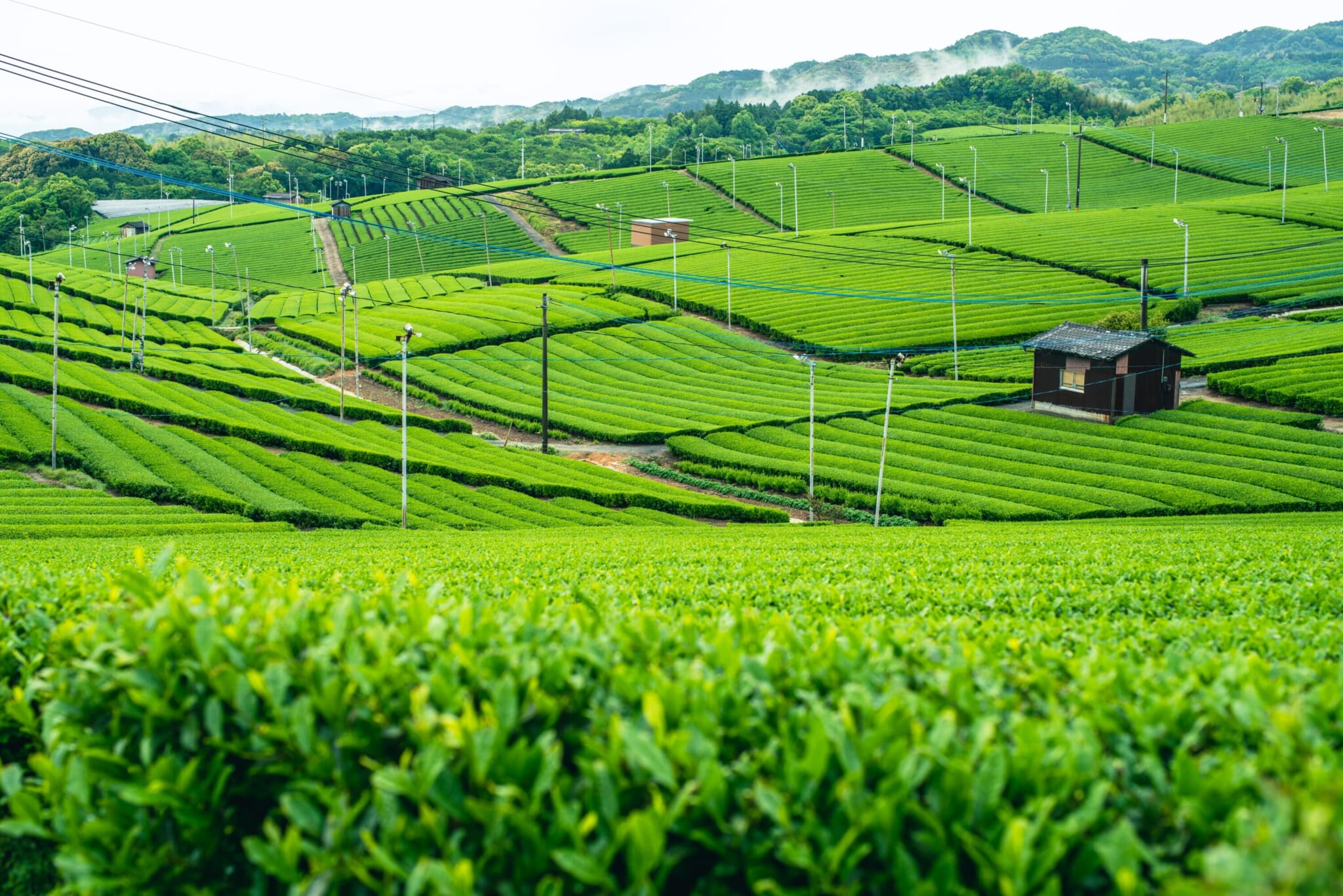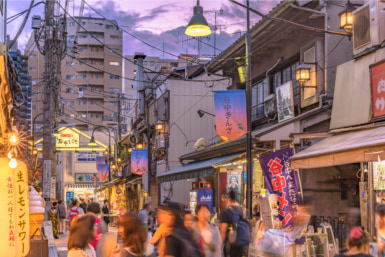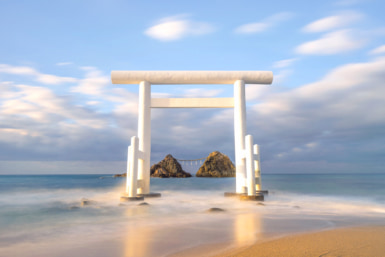To say that Yame is a city rich with cultural history would be an understatement. In 2023 the city celebrated its 600th anniversary as Kyushu’s tea capital, and its total production of traditional crafts is the largest in Kyushu, with a wide variety of local specialities in everything from textiles to paper.
Located roughly 50 kilometers south of Fukuoka city, Yame has seen big changes since 2006, when it began to merge with surrounding towns, skyrocketing the official population and making it Fukuoka Prefecture’s second largest city by area. Despite this, Yame remains undiscovered by many. Like many of Japan’s bigger cities, it has an industrial flavor to it, yet there’s much here to be enjoyed.
Here are our picks for a culturally packed trip.
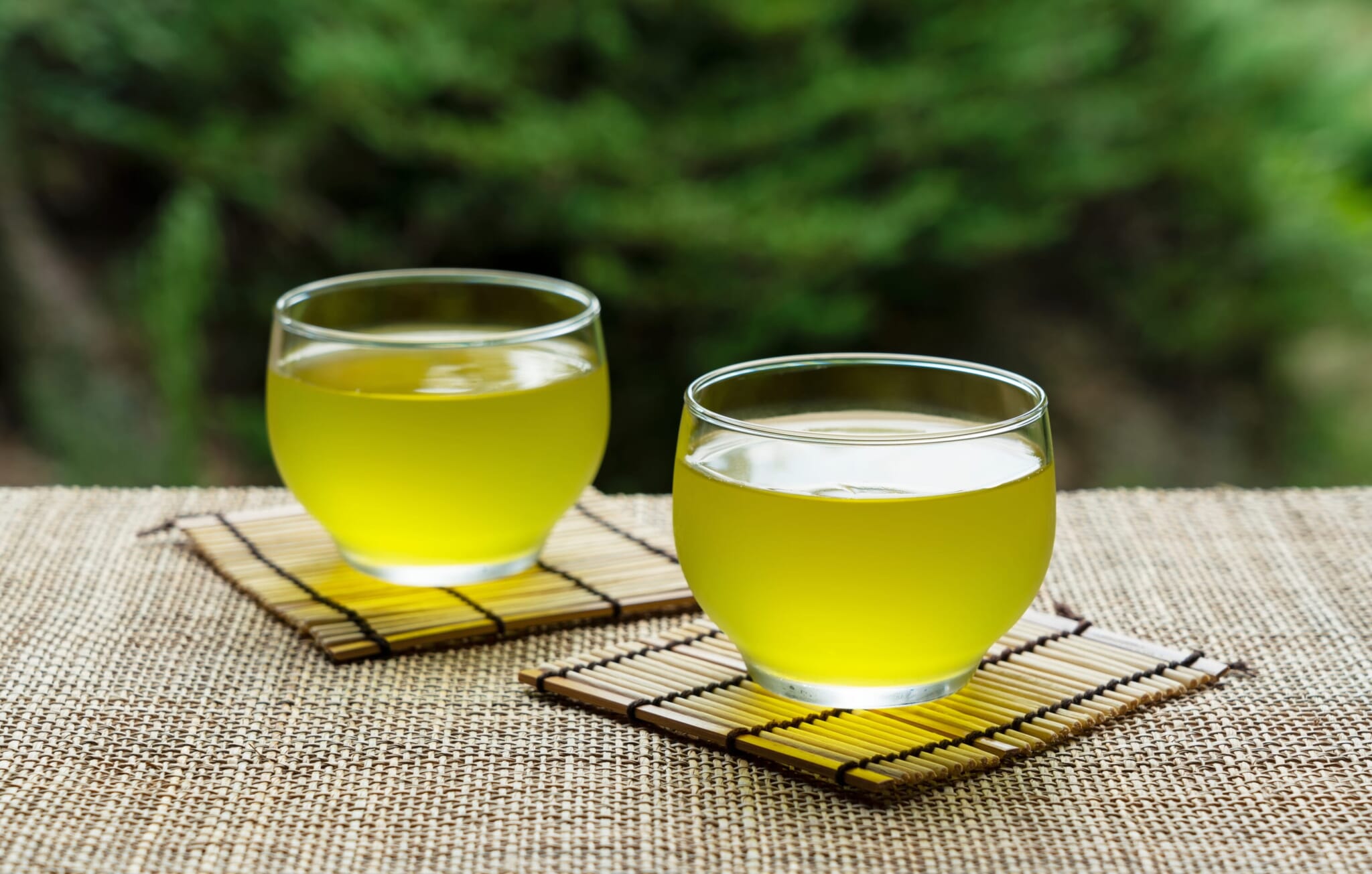
Try the Famous Local Tea
Get familiar with Yamecha, Yame’s renowned green tea. When served well, it has a luminous green hue, and is packed full of health benefits.
Head to the Central Tea Plantation, as no trip would be complete without a wander through its sprawling, 70-hectare property. Stop by the café for tea-flavored ice cream afterward. Shopping-wise, Konomi Honke in the Fukushima district sells a range of Yamecha and tea sweets to take home with you; their matcha powder is a must. For a well-brewed cup, try the nearby Ao Cafe. Their tea chiffon cake is a delight — as is the back room of this wooden folk house-turned-café, where you can overlook the garden
from plush leather armchairs.
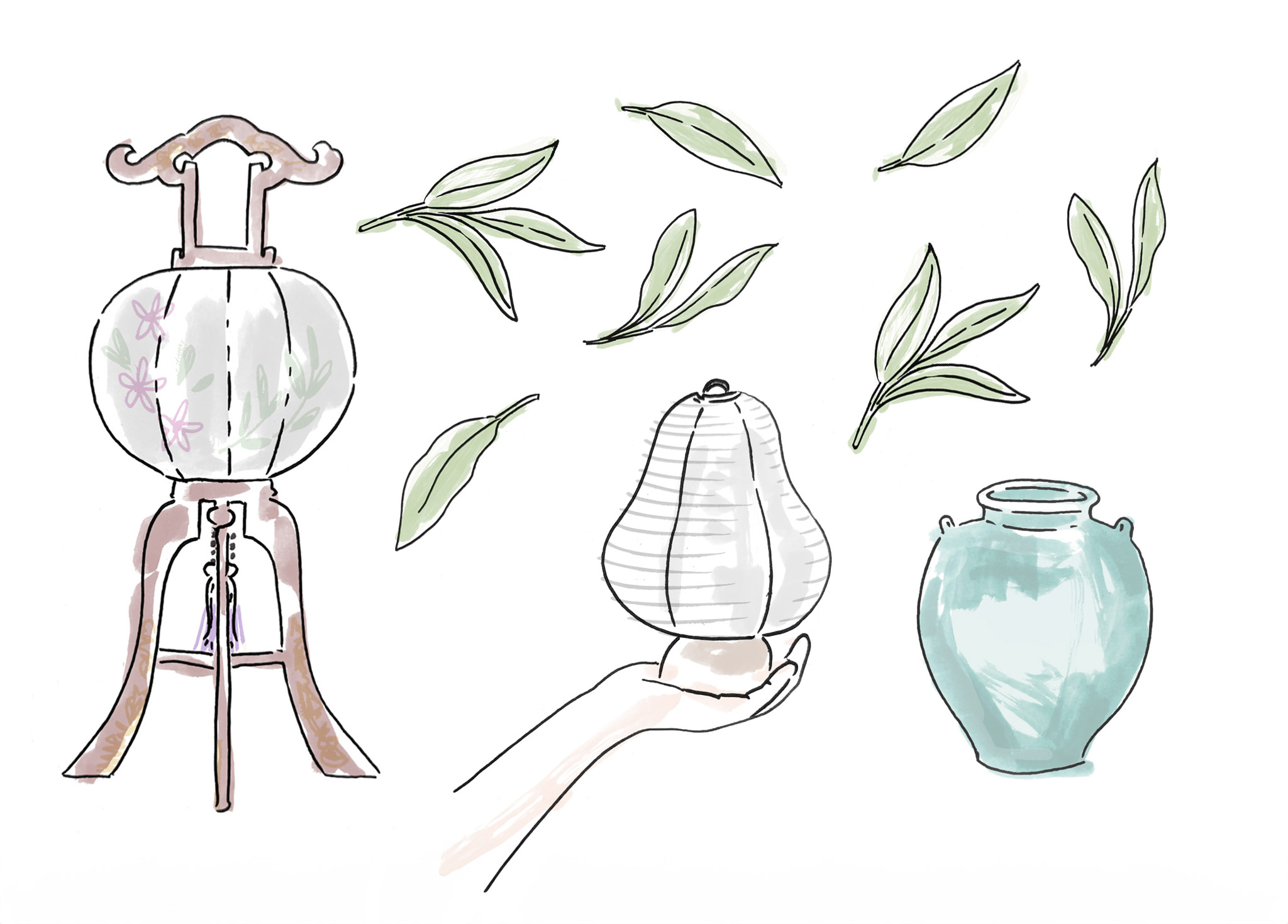
A selection of Yame crafts. Illustration by Victoria Bennett.
Immerse Yourself in Centuries of Craftsmanship
Yame is home to so many traditional crafts that it’s almost difficult to list them all. Bamboo ware, paper and chochin lanterns, home Buddhist altars (butsudan) and woven textiles (kurume kasuri) all have a home here. The Yame Traditional Crafts Museum acts as a hub for the city’s creative outputs. Visitors can see objects being made by local artisans, shop for souvenirs and try their hand at washi paper-making.
Stroll the streets of Yame’s historical Fukushima neighborhood, lined with traditional wooden shops, cafés and townhouses. For shopping, check out Unagi no Nedoko’s curated selection of homewares and clothing, including their selection of monpe — a Japanese workwear trouser made using Yame’s own intricately woven kurume kasuri fabric — and grab a coffee next door. Nearby you’ll find Cocolan, which sells beautiful, modern palm-sized chochin lamps created using traditional methods with local washi paper (Yame-shi) produced by paper-maker Toshikazu Mizota. Finally, pick up tea utensils for your new collection of Yamecha from Okiya Galerie.
If you plan to stay overnight, try Craft Inn Té, a boutique hotel with rooms themed around the materials indigo and bamboo. Guests can book classes and tours of local makers’ workshops.
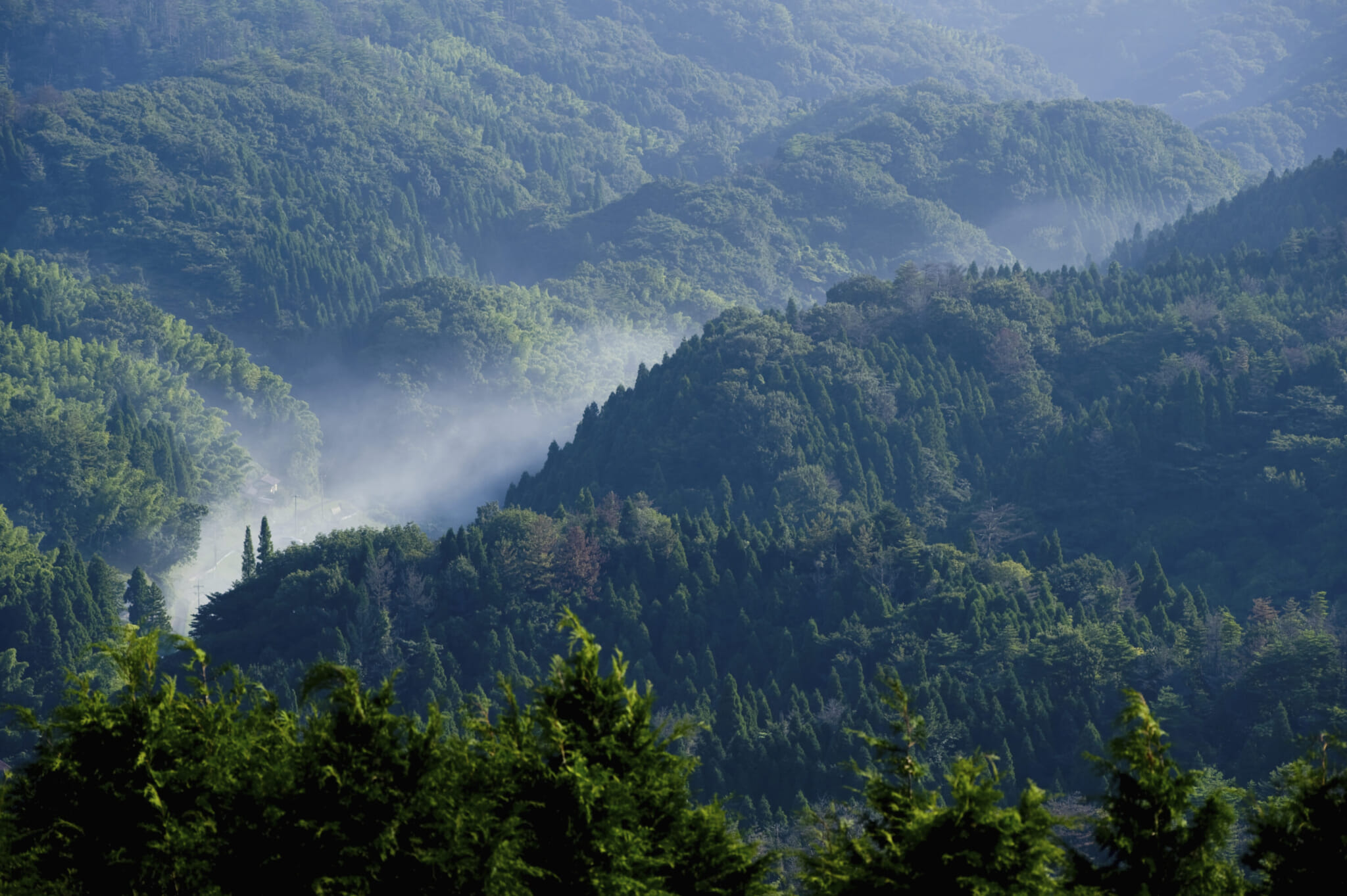
Into The Mountains
For those visiting by car, the nearby Yabe village (Yabe-mura) is a fabulous day trip for culture seekers. Stop by Yama Oyatsudokoro Furukawa for fresh yomogi manju as you make your way up to the village. A Yame delicacy, these
mugwort wheat-based mochi are produced fresh each morning at this 30-year-old shop, using local produce and fresh spring water from the Yabe mountainside.
Fans of Japanese wooden modernist architecture will go wild for the Culture Museum (Yabe no furusato bunka-kan): a 1930s schoolhouse-turned-gallery with pastel walls and an array of objects so eye-wateringly well placed that it could make Wes Anderson envious.
Yametsuhime Shrine is a known spiritual “power spot” of Kyushu. Thought to contain the spirit of ancient Japanese goddess Yametsuhime, this shrine has a 1,300-year history and is where Yame city derives its name. Built next to a natural rock alcove, and containing a 600-year-old hinoki tree encircled with shimenawa garlands, the sacred space radiates lush tranquility.
Finally, stop by the studio of master potter Shinichi Fuchinoue, who runs the kangetsu-yake gozen kiln. Visitors can pick up his ceramics at a good price from the shop, and there’s a chance to have a go at painting a cup or plate yourself in his adjacent class space.
To discover more of Yame’s charms, see the Visit Yame website.
This article appeared in Kyushu Weekender 2024. To read the whole issue, click here.

